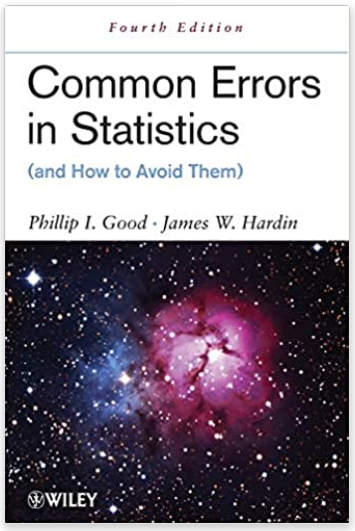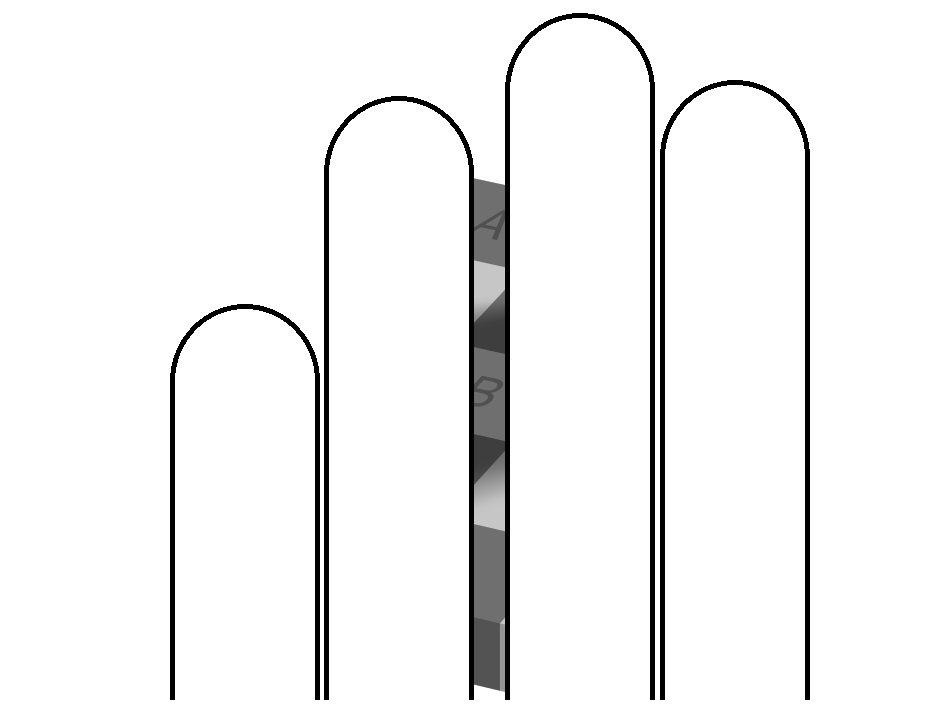
Cognitive biases, flawed reasoning, fallacies and denial dominate opinions and decision making

The squares labelled A and B are actually the same shade of grey!
People are generally unaware of them and can be misled into having strong opinions on things they know little about.
Kinds of misthinking include
- cognitive biases
- flaws in reasoning
- fallacies
- denial.
Flaws in our understanding of the world
Although we have a strong impression that we see the world as it is, there are in reality many ways in which our brains' attempts to make sense of the world can end up misleading us. Optical illusions are a simple example. The squares labelled A and B in the image above [1] are in fact the same shade of grey (see the Appendix) and the red lines in the lower image [2] are in fact straight and parallel.
Optical illusions are a simple example. The squares labelled A and B in the image above [1] are in fact the same shade of grey (see the Appendix) and the red lines in the lower image [2] are in fact straight and parallel.A second example is that at one time it was thought that the sun orbited the earth. This view was so strongly held that Galileo was prosecuted by the Roman Catholic Church, was threatened with torture, and at his trial was sentenced to house arrest for the rest of his life for merely discussing the alternative heliocentric view of Copernicus [3].
Cognitive biases
Some more subtle flaws in mental processing are the cognitive biases.Overconfidence is probably the most widely known - with a common example being that many surveys have found that most drivers think they are better-than-average drivers, which could not possibly be true. For example, in a 2018 survey, 73% of US drivers considered themselves to be better-than-average drivers [4]. Overconfidence is considered to be the most damaging bias by Daniel Kahneman, who was awarded a Nobel Prize for his work on cognitive biases [5]. Overconfidence is particularly dangerous if people are unaware of it and take no precautions to combat it.
The Dunning-Kruger effect was discoved by researchers Dunning and Kruger in their work on overconfidence. They found that while we are generally overconfident in our self-assessments, those who are least able are the most overconfident in their ability. Put simply, we don't know what we don't know, and the less we know, the less we are aware of our ignorance.
Groupthink / herd mentality
Groupthink was described by Janis as "the mode of thinking that persons engage in when concurrence-seeking becomes so dominant in a cohesive ingroup that it tends to override realistic appraisal of alternative courses of action" [6]
There are many other cognitive biases, including wishful thinking (optimism bias) and confirmation bias - Wikipedia lists dozens [7]
Research flaws
 There are numerous possibilities for error in how research is carried out and in how results are interpreted.
There are numerous possibilities for error in how research is carried out and in how results are interpreted. One common misunderstanding is over the size of survey samples, with many people believing that if a sample size is large, then the results will be a reliable reflection of the whole population. This is true only if the sample is representative of the whole population, and is not true if the sample is biased.
A second common misunderstanding is the association-implies-causation fallacy.
There is an extensive literature on research errors and how to avoid them. The large number of potential pitfalls means that much care is needed in carrying out research and translating it into practical application.
Flaws in reasoning
There are numerous fallacies in debating that can contribute to wrong decisions being made, e.g.- the straw man fallacy
- an ad hominem attack.
Denial
Climate denial can be categorised [8] as- literal denial: outright denial of facts
- interpretive denial: denial of personal and global outcome severity
- implicatory denial: acknowledgement of facts but denial of their implications, e.g. avoidance, denial of guilt, rationalization of own involvement.
Conclusions
The consequence of all the cognitive biases and other flaws in understanding and discussing the world is that it is easy to draw a wrong conclusion. Once groupthink is involved, it is easy for people to form groups that distrust each other, and for people to become polarised. Add in unscrupulous politicians and a biased media and fallacies can become established and entrenched.Those with different views to a group can be dismissed as
- ignorant and/or stupid
- corrupt
- doommongers
- trouble makers.
The end result is a failure to reach a consensus and wrong decisions. This is not a good way for society to approach difficult problems.
References
| [1] | Edward H. Adelson: Checker shadow illusion https://en.wikiversity.org/wiki/File:Checker_shadow_illusion.svg |
| [2] | Attribution: https://commons.wikimedia.org/wiki/File:Hering_Taeuschung.svg shared under the Attribution-Share Alike 4.0 International licence |
| [3] | Jessica Wolf (2016) The truth about Galileo and his conflict with the Catholic Church https://newsroom.ucla.edu/releases/the-truth-about-galileo-and-his-conflict-with-the-catholic-church, viewed 21.1.2022 |
| [4] | American Automobile Association survey (2018) https://newsroom.aaa.com/2018/01/americans-willing-ride-fully-self-driving-cars/, viewed 19.1.2022 |
| [5] | Daniel Kahneman: "What would I eliminate if I had a magic wand? Overconfidence" (2015) https://www.theguardian.com/books/2015/jul/18/daniel-kahneman-books-interview |
| [6] | Kopp (2016) Avoiding the Pitfalls of the Dunning-Kruger Effect and Groupthink https://users.monash.edu/~ckopp/archive/PAPERS/Seminar-DKE+Groupthink-2016.pdf |
| [7] | https://en.wikipedia.org/wiki/List_of_cognitive_biases |
| [8] | Wullenkord MC (2022) From denial of facts to rationalization and avoidance: Ideology, needs, and gender predict the spectrum of climate denial https://www.sciencedirect.com/science/article/pii/S0191886922001209?via%3Dihub |
Appendix: Checker shadow illusion


First published: 16 Jan 2022

 ✖
✖